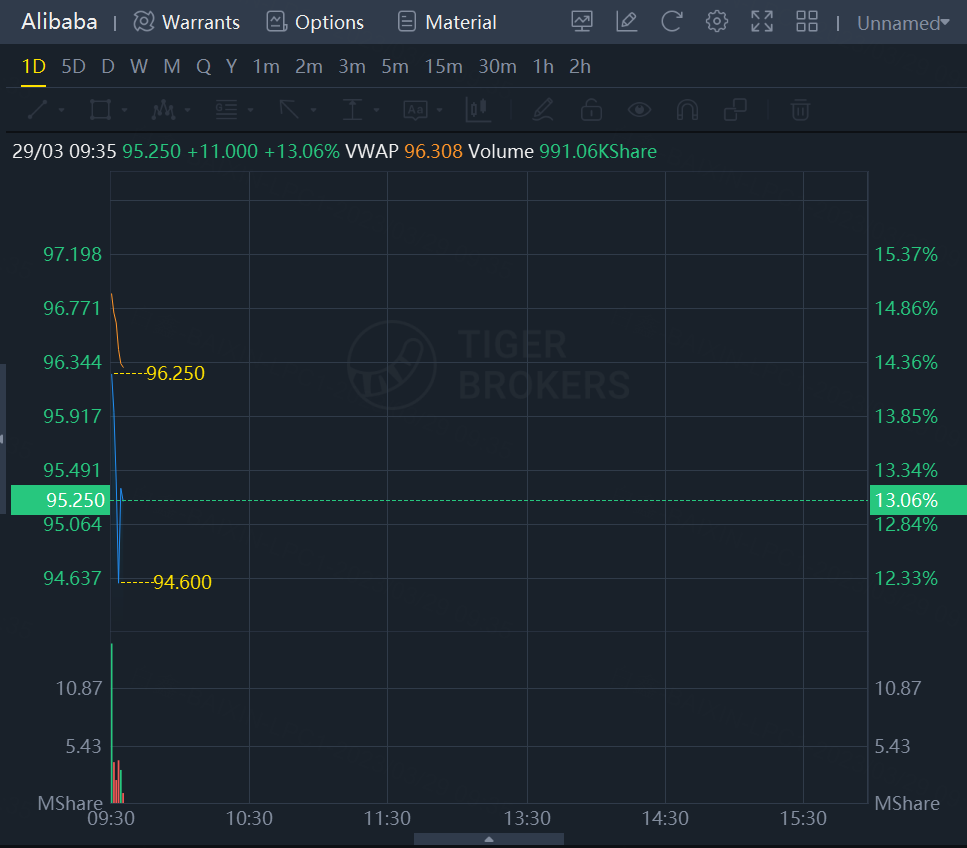Hong Kong shares of Alibaba Group surged 13% after it announced plans to split into six units and explore fundraisings or listings for most of them.
The decision to split into different units means each will be managed by its own leadership and executive board, and can pursue independent fundraising and IPOs when they’re ready.
The company said the move aims to “unlock shareholder value.”
The six business groups are:
- Cloud Intelligence Group:includes company’s cloud and artificial intelligence activities.
- Taobao Tmall Commerce Group:online shopping platforms including Taobao and Tmall.
- Local Services Group: covers Alibaba’s food delivery service Ele.me as well as its mapping.
- Cainiao Smart Logistics: houses Alibaba’s logistics service.
- Global Digital Commerce Group: includes Alibaba’s international e-commerce businesses including AliExpress and Lazada.
- Digital Media and Entertainment Group:includes Alibaba’s streaming and movie business
The overhaul of the Chinese technology giant comes at the back of the company facing continued struggles with growthover the past few quarters– the company erased roughly $600 billion from its peak seen in October 2020 as it continued to grapple with the Chinese government’s crackdown on technology companies.
The stock moves are more reflective of a sense of relief, rather than investors’ hopes in the business, value investor and Warren Buffett disciple Guy Spier told CNBC’sTanvir Gill.
“The rally in the shares is not so much because the market expects greater profitability, rather than relief that tensions with the regulator seem to have been resolved,” Spier said, adding that the company will face less pressure going forward.
He added that Chinese consumers – not investors – would be the beneficiary of Alibaba’s overhaul.
“This sets the stage for a more innovative Chinese tech sector and far more competition – so very good for Chinese consumers,” he said, adding that it “reduces concentration and the power of one business within China – which was making Chinese regulators uncomfortable.”
